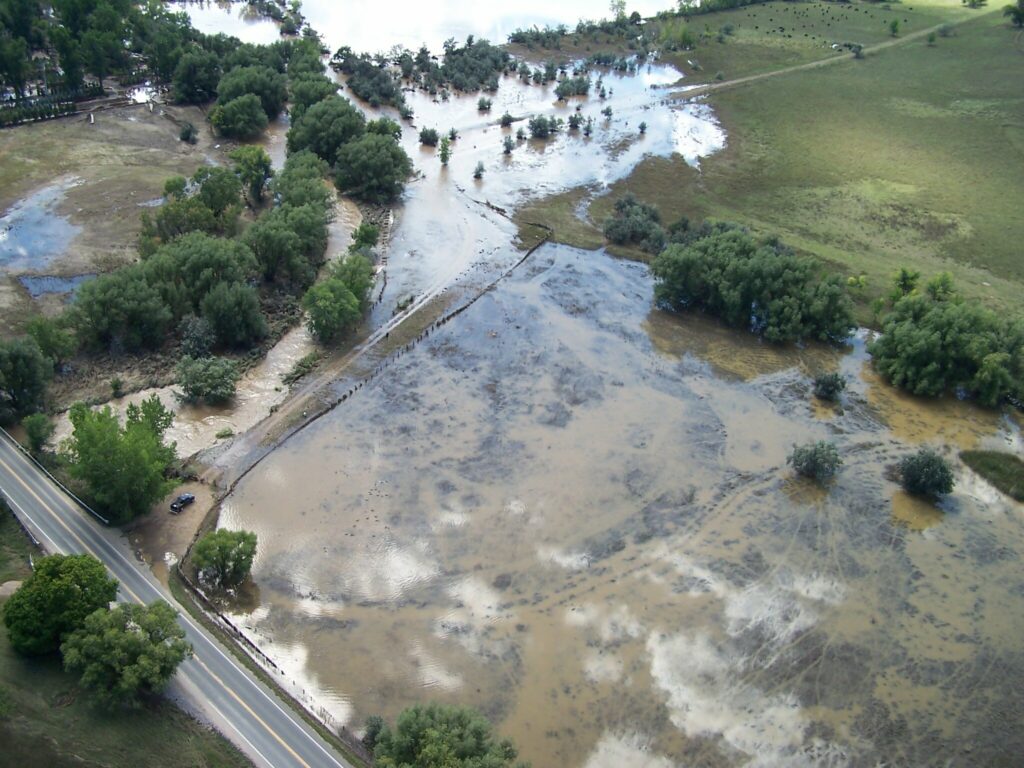
Tuesday, Sept. 21, 2021
Boulder’s city council on Tuesday voted 6-1 to approve annexation of CU South, paving the way for flood protection and, eventually, a southern campus of the University of Colorado.
“We have to act now,” Mayor Sam Weaver said, explaining his support. “The peace, health and property of at least 2,600 people depend on us getting our flood protection in place. I don’t know how we could possibly do that without this annexation.”
CU is donating land for flood mitigation to Boulder in exchange for having its property added into city limits. That gives the university access to water and sewer services necessary for future development.
The land — 308 acres south of the city along U.S. 36 — was first identified as desirable for annexation in a 1977 update to the Boulder Valley Comprehensive Plan. A 2009 study identified this area as the best option for flood protection due to the high number of downstream residents. Results of that analysis were adopted by city council in 2015, and design plans for a dam, detention area and floodwall were approved in 2020.
Negotiations with CU began in earnest after the flood study, beginning with guiding principles that were adopted into the BVCP in 2017. The annexation agreement was released earlier this year, with substantial changes before Tuesday’s adoption.
Read: CU South Annexation: A Primer
The annexation was passed on an emergency vote, something staff recommended as a way to ensure that flood work
(and spending on it) would continue during a promised challenge to annexation. Opponents of annexation have already pledged a referendum, a type of citizen petition to overturn government decisions and actions.
A referendum is just one of many obstacles to flood mitigation and/or development of CU South. Council and the Open Space Board of Trustees need to approve disposal of land on which the planned floodwall will be built. That decision, too, is subject to a referendum.
Flood mitigation is subject to approval from a dozen agencies, including state and federal wildlife and transportation officials. If the project isn’t permitted, annexation would be undone.
In any event, development is years away. A planning process for a southern campus has yet to be completed; CU officials note it could be 10-15 years before CU South is built out. Construction of a dam, detention and floodwall is not expected to begin until 2024 and wrap in 2026.
It’s also possible CU could decide not to build there, instead opting for a land swap with the city for a 500-acre planning reserve north of the city. University officials have been cool on the idea, long pushed by opponents of development at CU South. Council also rejected it as unnecessarily delaying flood mitigation since the earliest the reserve will be annexed into the city is 2025.
Councilman Adam Swetlik asked that CU seriously consider a land swap in the future. Patrick O’Rourke, speaking for the university, said CU remained open to the possibility if reserve is annexed before the southern campus is built out.
“We would really need to be talking about annexed parcels of property in order for this to be a comparable conversation,” he said.
“I just fundamentally disagree with building next to a property that is going to be used for flood mitigation,” Swetlik said, though he ultimately voted for annexation. “My idealism for what would be beneficial to the community has butted up against the reality of what we need. Health and safety won out.”
Read a Twitter thread from Tuesday’s meeting
In an emailed statement following the meeting, chancellor Phil DiStefano said, “We are grateful to the City Council for its annexation vote that advances so many shared values and community benefits, most notably flood protection for the community and attainable housing options that address a critical need locally.
“This agreement, which was the result of years of collaboration by City Council, city staff, Boulder County officials, our university colleagues and the community members who played vital roles in shaping this agreement embodies the type of city-university collaboration that can make us both stronger and more resilient for decades to come. I’m also grateful to the members of the community who attended the public hearingScheduled time allocated for the public to testify or share commentary/input on a particular ordinan... last week to share their perspectives and reinforce that this agreement will protect residents who were harmed by past floods, preserve open space, and provide housing for students, faculty and staff who hope to live in the community in which they work and study.”
Councilwoman Mirabai Nagle dissented to the annexation. Members Junie Joseph and Bob Yates recused themselves from the decision.
— Shay Castle, @shayshinecastle
Want more stories like this, delivered straight to your inbox? Click here to sign up for a weekly newsletter from Boulder Beat.
Help make the Beat better. Was there a perspective we missed, or facts we didn’t consider? Email your thoughts to boulderbeatnews@gmail.com
CU South annexation Boulder campus CDOT city council city of Boulder CU CU South detention flood mitigation flood wall open space Open Space Board of Trustees OSBT University of Colorado
